Update: The original version of this post speculated that the Norco frame in question runs a 6-bar linkage which, strictly speaking, is incorrect. This was our misunderstanding, and we thank DHDave for forcing us to rethink this one. It is actually a four-bar linkage that defines the rear axle path in this prototype frame, with an additional two links and very short yoke working to drive the rear shock. That said, we won’t have a full understanding of the prototype Norco DH bike until we have seen how all the bars rotate as the rear end is pushed through its travel, and have more detailed information from Norco.
Gracey Hemstreet, Lucas Cruz and Mark Wallace have been testing an all-new prototype aluminum downhill bike from Norco. And, Lucas Cruz just won the Canadian Downhill National Champs aboard his. Here’s what we’ve gleaned so far.
Norco’s Prototype High-Pivot DH Bike
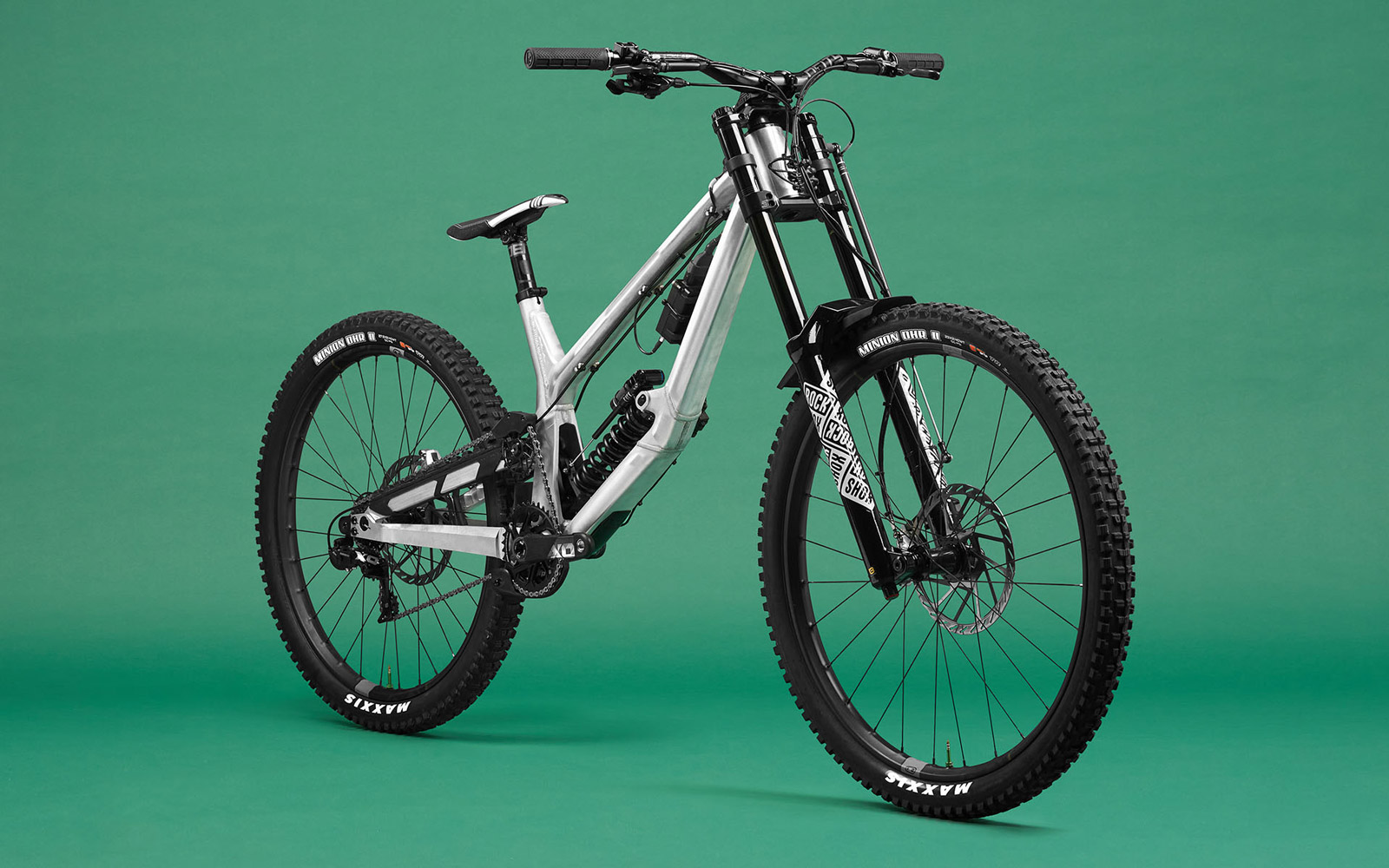
Until now, Gracey Hemstreet, Lucas Cruz and Mark Wallace have been piloting the Norco Range DH at UCI Downhill World Series events, which is essentially a long-travel version of the Range Enduro Bike, adapted for the demanding tracks with a dual-crown fork, and a modified link in the rear to allow the frame to accept a longer stroke shock. Now, it seems, the team is to benefit from a dedicated downhill bike that runs an all-new suspension design.
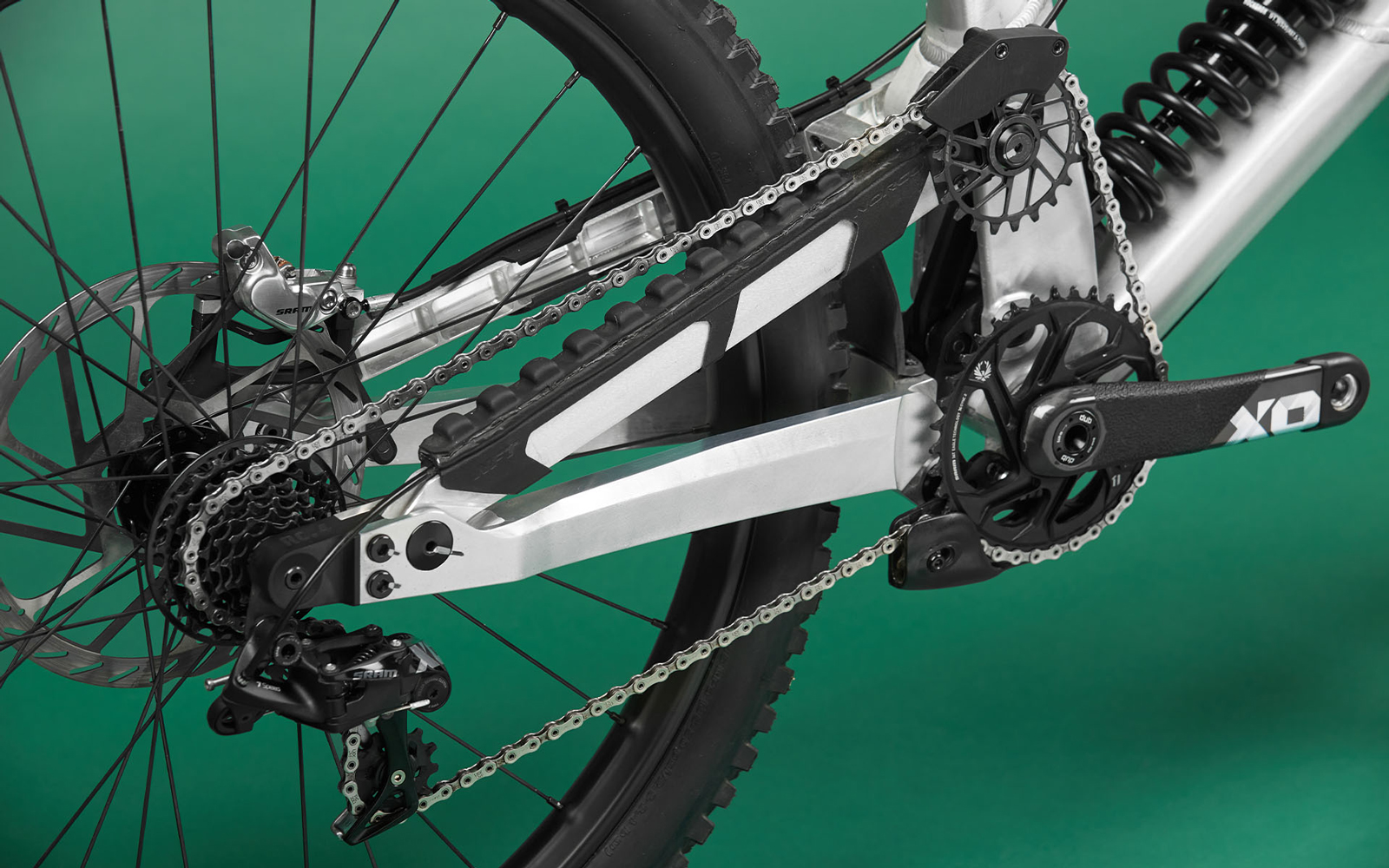
Bidding farewell to the linkage-driven single-pivot of the Aurum HSP, the new Norco sees a four-bar linkage which appears to be a modification of that we see implemented on the Norco Range. The latter sees the lower link articulate about a pivot concentric to the bottom bracket, and connected to a secondary link that serves only to drive the shock.
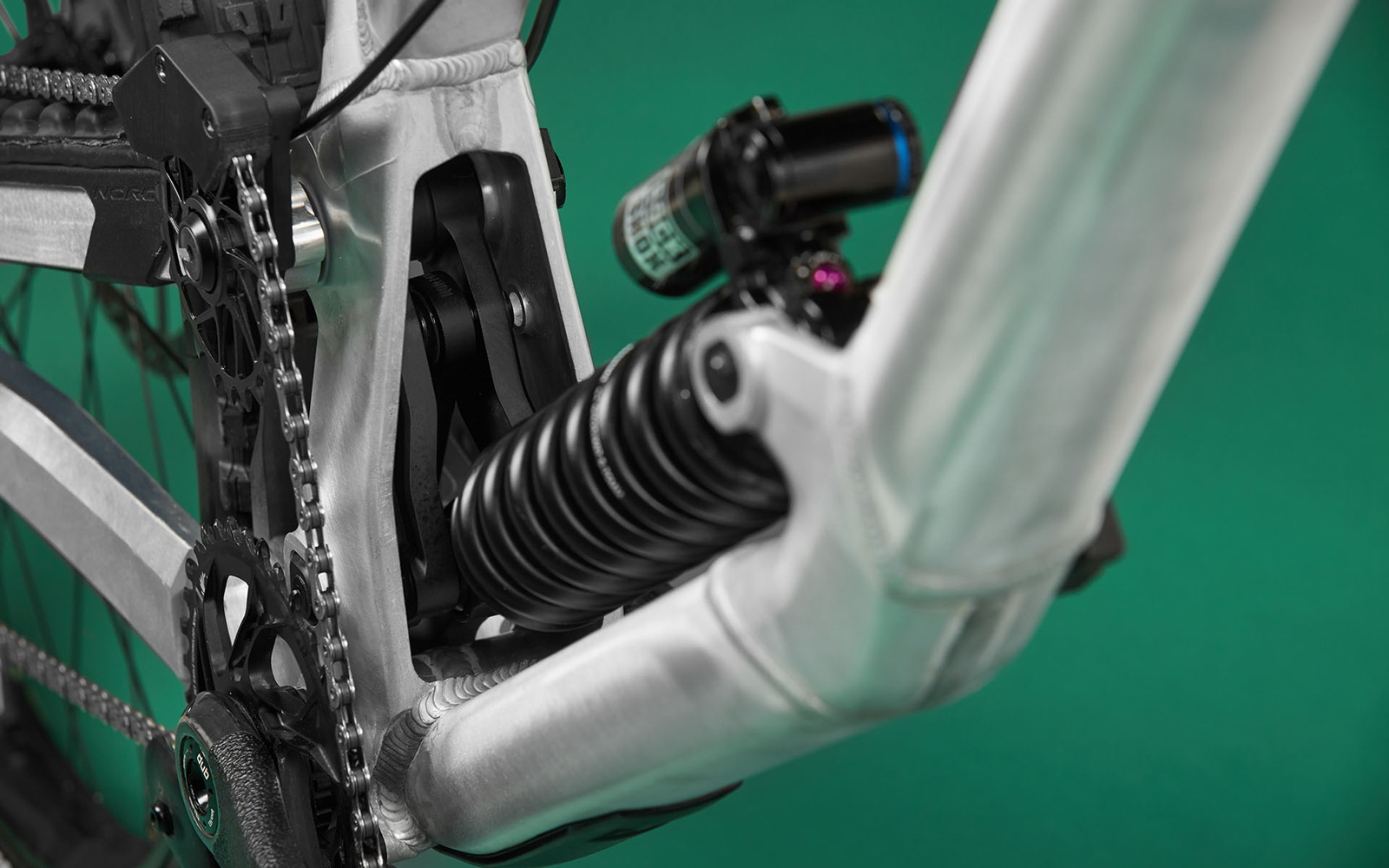
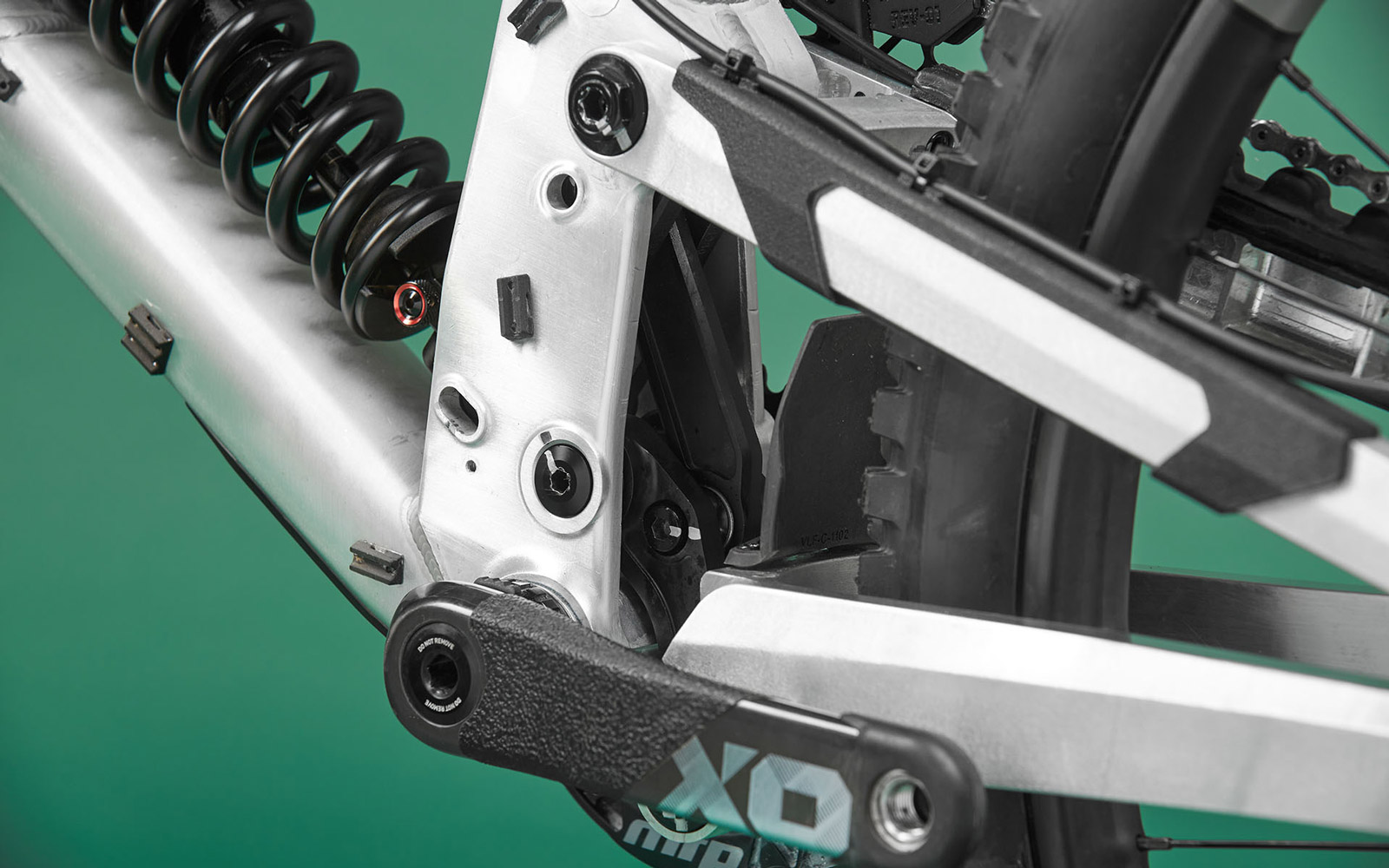
In contrast to that, the lower link on this aluminum prototype (light blue) is pivotally connected to the front triangle at a position above, and slightly aft of, the bottom bracket. Between it and the rear shock, there are two links working together (pink and orange) to drive a very short yoke (dark blue), which is the final member involved in driving the rear shock.
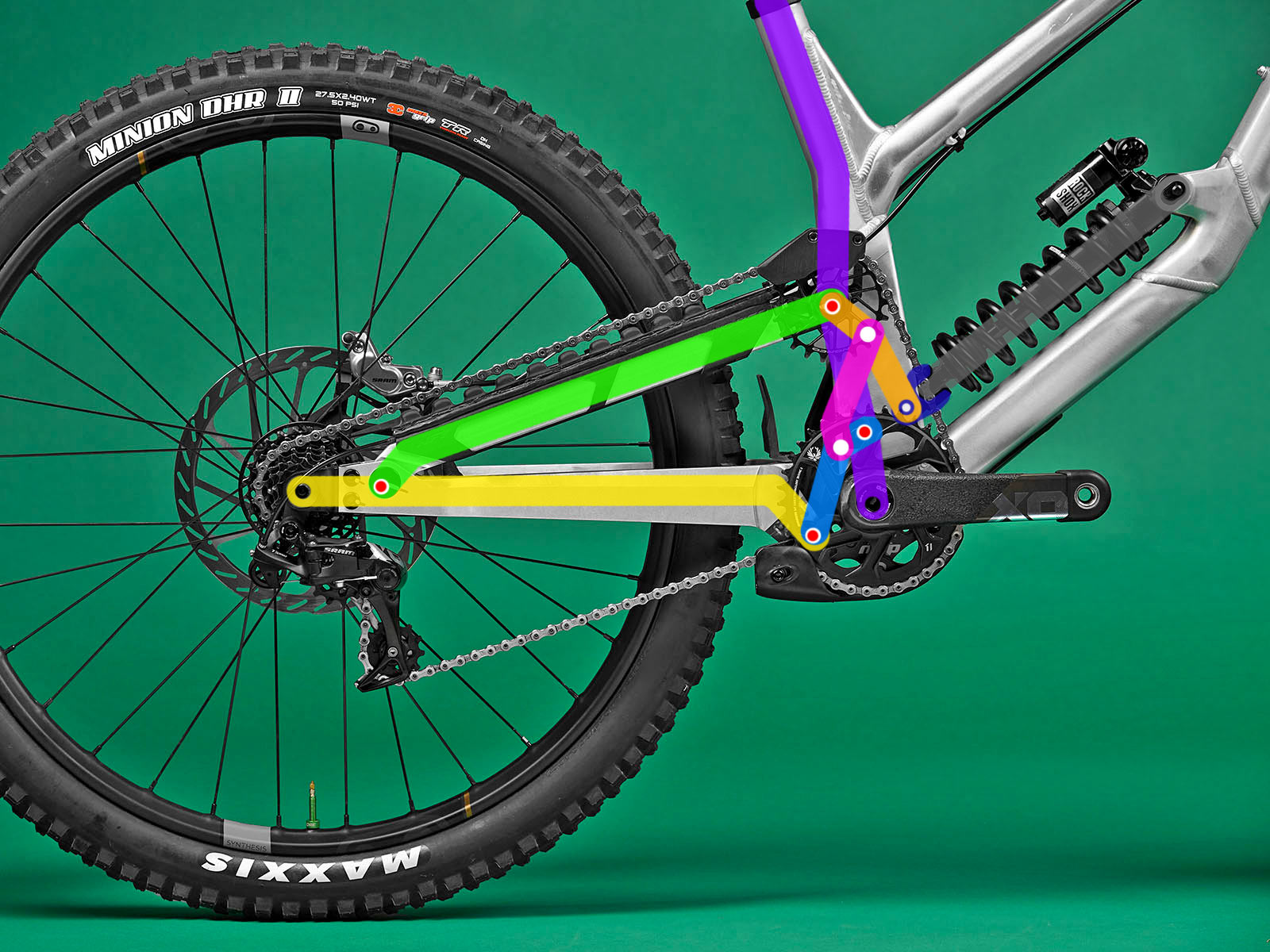
We reached out to Norco for comment on the new linkage design. Richard Belson of the Norco Communications Team said, “The new DH prototype uses a complete re-imagining of the High Virtual Pivot suspension design we introduced on the Range a couple years back – but optimized for DH racing. Custom linkages and suspension components allow fine-tuning of leverage curves and allow us nearly infinite control over every aspect of the suspension performance. The principal design goal was to give the Norco Factory Team the best equipment available to win races on and provide engineers with and unprecedented level of control over kinematics and fine-tuning every aspect of the suspension”.
Indeed, Norco is sticking with a high-pivot, seemingly very happy with the majority rearward axle path it delivers. An idler pulley looks to be positioned concentric to the upper pivot in order to route the chain in such a way as to reduce the negative effects of chain growth that would otherwise impinge upon the performance of this layout.
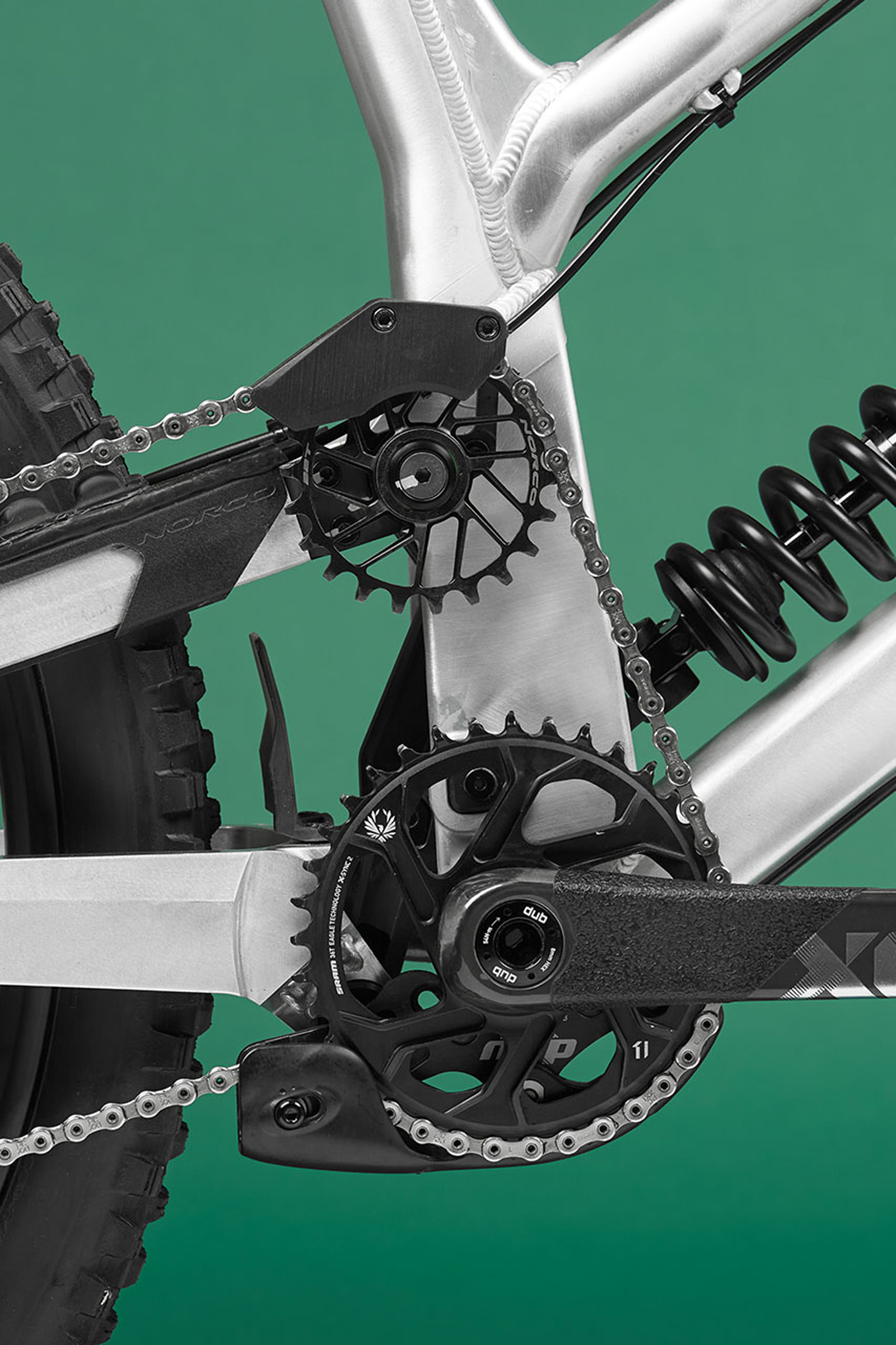
The team are running a 22T idler pulley, which is very large by current industry standards. Only the Nicolai Nucleon 16 with the Lal Bikes Supre Drive runs an idler pulley this big; the larger circumference of the pulley reduces the articulation required at each link, and thus the friction in the system.
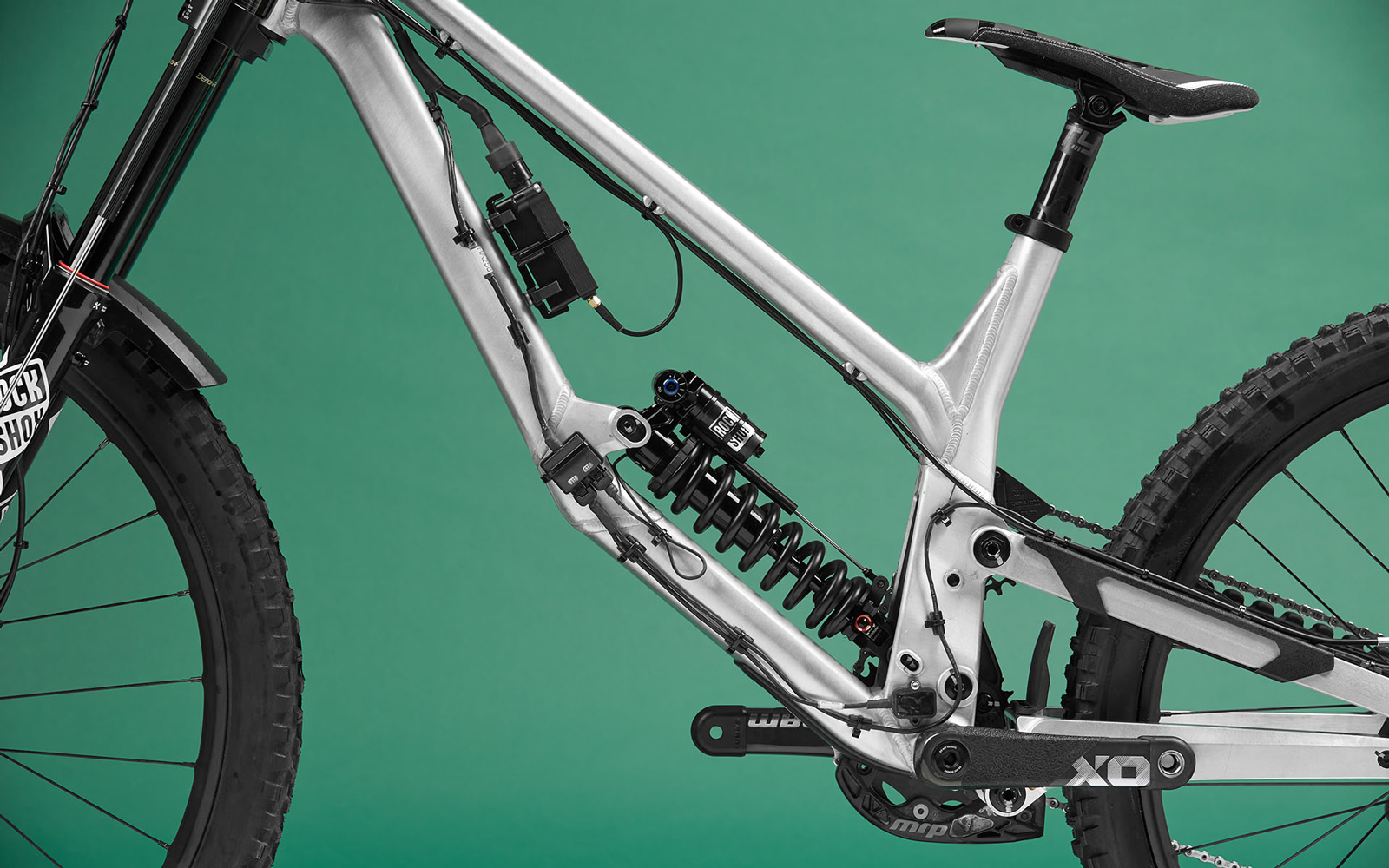
I shan’t be commenting on what kind of kinematic is likely to arise from such a layout, but it seems to work nicely with both air and coil shocks. Lucas Cruz just won the Canadian National Champs aboard this prototype Norco DH bike, sprung by a RockShox air shock running a very, very large air can – as compared to the modestly-sized air can we see on the Super Deluxe Ultimate Air Shocks, that is. Meanwhile, 2nd place Mark Wallace‘s bike was coil-sprung.
Also noteworthy is that a Norco Development Engineer involved in the creation of this bike, Kirk McDowall, filled third place on that same podium. Chapeau.
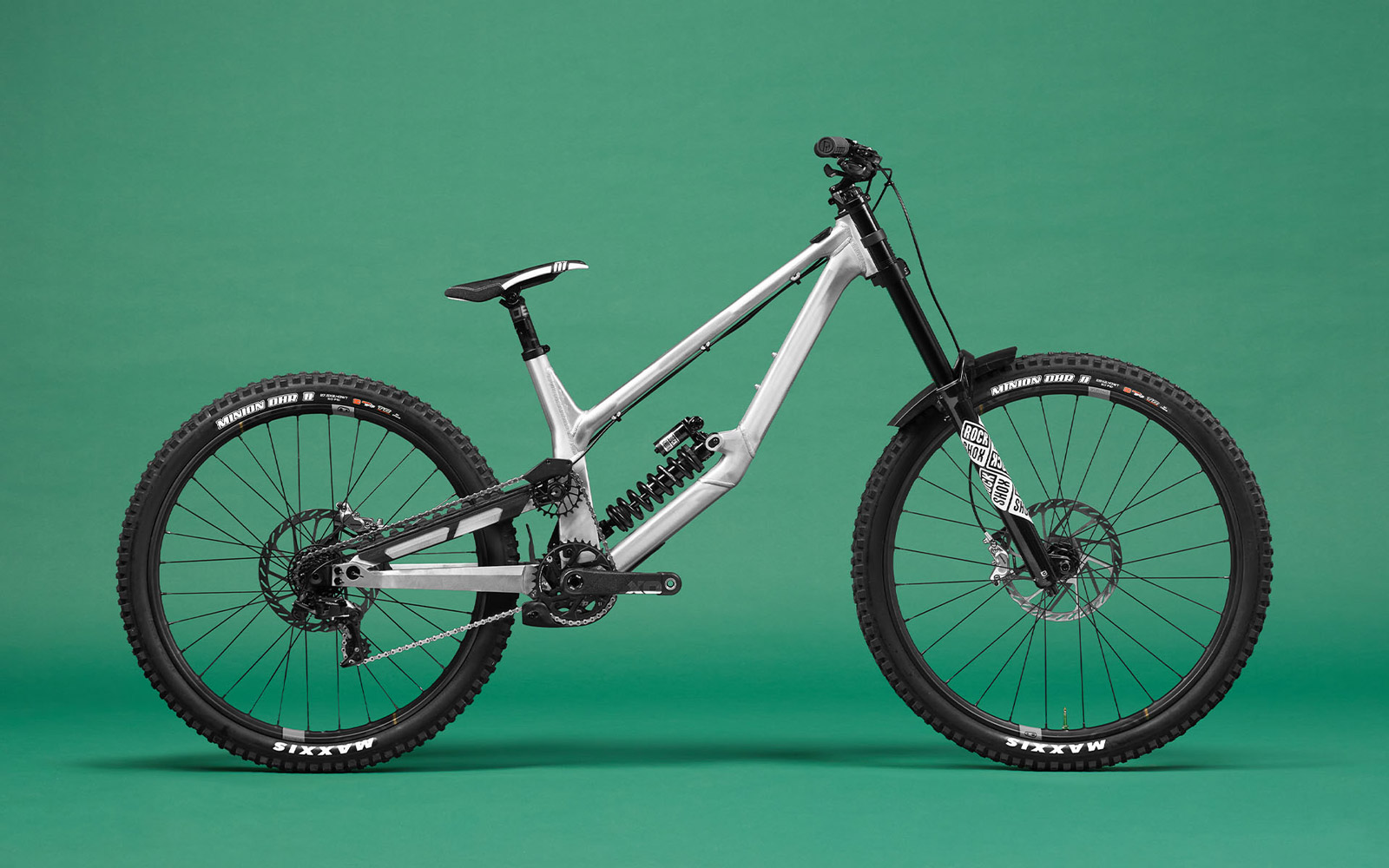
Richard tells us Norco have a solid plan to continue development of this aluminum prototype to meet the needs of the team. He goes on to say, “Everything we learn with these frames and this development process will inform future versions of our most popular platforms, but our primary goal is to create the fastest DH bike in the world, with no expense spared. There’s still a great deal of work to do before determining what version of this platform ever makes it to market, and when”.
The snippets of information we’ve collated from the Norco Factory Team’s social media indicate that the team will be switching to this new bike for the rest of the UCI Downhill World Series, kicking off in Pal Arinsal, Andorra, on the 24th August.
Until then!
